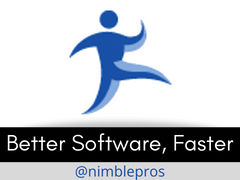DevIQ
Specification Pattern
Specification Pattern
One Domain-Driven-Design solution to the problem of where to place querying, sorting, and paging logic is to use a Specification. The Specification design pattern describes a query in an object. So to encapsulate a paged query that searches for some products, one might create a PagedProduct specification which would take in any necessary parameters (pageSize, pageNumber, filter). Then one of your repository methods (usually a List() overload) would accept an ISpecification and would be able to produce the expected result given the specification. There are several benefits to this approach. The specification has a name (as opposed to just a bunch of LINQ expressions) that you can reason about and discuss. It can be unit tested in isolation to ensure correctness. And it can easily be reused if you need the same behavior (say on an MVC View action and a Web API action, as well as in various services). Further, a specification can also be used to describe the shape of the data to be returned, so that queries can return just the data they required. This eliminates the need for lazy loading in web applications (bad idea) and helps keep repository implementations from becoming cluttered with these details.
Ardalis.Specification
If you're considering implementing the Specification pattern in your .NET application, especially if you're using EF, have a look at my Ardalis.Specification repository and NuGet Package. It likely provides everything you need to get started.
Generic Specification Interface
// https://github.com/dotnet-architecture/eShopOnWebpublic interface ISpecification<T>{ Expression<Func<T, bool>> Criteria { get; } List<Expression<Func<T, object>>> Includes { get; } List<string> IncludeStrings { get; }}Generic Specification Implementation (Base Class)
// https://github.com/dotnet-architecture/eShopOnWebpublic abstract class BaseSpecification<T> : ISpecification<T>{ public BaseSpecification(Expression<Func<T, bool>> criteria) { Criteria = criteria; } public Expression<Func<T, bool>> Criteria { get; } public List<Expression<Func<T, object>>> Includes { get; } = new List<Expression<Func<T, object>>>(); public List<string> IncludeStrings { get; } = new List<string>();
protected virtual void AddInclude(Expression<Func<T, object>> includeExpression) { Includes.Add(includeExpression); } // string-based includes allow for including children of children, e.g. Basket.Items.Product protected virtual void AddInclude(string includeString) { IncludeStrings.Add(includeString); }}A Simple Specification
The following specification will load a single basket entity given either the basket's ID or the ID of the buyer to whom the basket belongs. It will eager load the basket's Items collection.
public class BasketWithItemsSpecification : BaseSpecification<Basket>{ public BasketWithItemsSpecification(int basketId) : base(b => b.Id == basketId) { AddInclude(b => b.Items); } public BasketWithItemsSpecification(string buyerId) : base(b => b.BuyerId == buyerId) { AddInclude(b => b.Items); }}Generic EF Repository with Specification
Below is an example repository method that uses a specification to filter and eager load data related to a given generic entity type, T.
// https://github.com/dotnet-architecture/eShopOnWebpublic IEnumerable<T> List(ISpecification<T> spec){ // fetch a Queryable that includes all expression-based includes var queryableResultWithIncludes = spec.Includes .Aggregate(_dbContext.Set<T>().AsQueryable(), (current, include) => current.Include(include));
// modify the IQueryable to include any string-based include statements var secondaryResult = spec.IncludeStrings .Aggregate(queryableResultWithIncludes, (current, include) => current.Include(include));
// return the result of the query using the specification's criteria expression return secondaryResult .Where(spec.Criteria) .AsEnumerable();}Although it's not recommended to return IQueryable from a repository, it's perfectly fine to use them within the repository to build up a set of results. You can see this approach used in the List method above, which uses intermediate IQueryable expressions to build up the query's list of includes before executing the query with the specification's criteria on the last line.
See Also
References
Design Patterns Library (includes a module on Specification)
Edit this page on GitHub